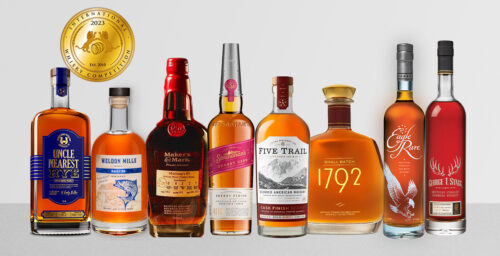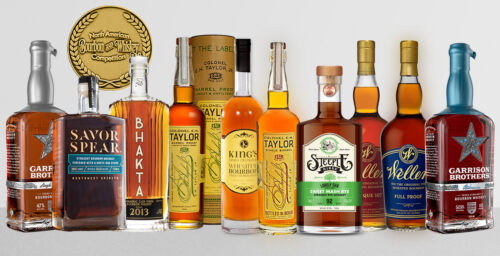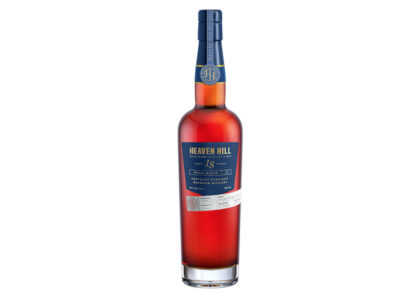Following the Russian invasion of Ukraine, unprecedented sanctions are now instituted by Western countries against Vladimir Putin’s regime. Along with individual sanctions on corrupt oligarchs, freezing of Russian assets and the crippling of the rouble many international businesses have closed up shop and stopped selling their products in the country.
This includes the Scotch whisky industry. The big players, including Diageo, Chivas, and Edrington are no longer exporting to Russia. It was Scotch whisky’s 10th largest export market by volume last year, and was growing significantly until now. In 2021, 42 million bottles of Scotch were sold in Russia, an increase of around 40% from last year.
In an excellent piece analysing the issue, whisky writer Dave Broom also reports that Latvia’s success as a Scotch whisky market is tied to the fact that a lot of high value whisky is then shipped on to Russia as well.
There’s also the Lindores Distillery. A new independent operation making great whisky, founders Drew and Helen MacKenzie Smith couldn’t have made their dream to start the distillery reality without Russian investors who still own the company. Since then, Lindores is now going through the process of ‘de-Russifying’ itself, and its Russian non-executive directors (who own companies with ties to the Russian defense industry) have stepped down.

Historically, the Scotch whisky industry tries to avoid getting involved in politics so even though this has been a wide movement cutting across many sectors the industry’s decision is still significant.
In his piece, Broom asks some hard and important questions about what comes next for the industry in Russia. Are exports paused, or stopped permanently? What will happen to major business partnerships between Russian and Scotch whisky drinks companies such as Grants and Beluga vodka? What about existing and continued Russian investments in distilleries?
Here’s some rapid-fire (and completely speculative) answers to each respective question. Once exports eventually resume, months or years from now when the Ukraine war features less in the news cycle, the market will be much smaller in both value and volume, hampered by Russia’s devastated economy. Some companies may not even bother returning.
In this vein, existing partnerships between Russian and Scottish firms will certainly be much more anemic than before if not dissolved entirely.
As for existing and future Russian investment in Scotch, this will depend on the UK government which has until now turned a blind eye to the many rich Russians that have used the UK and especially London as a literal playground (the UK has a ‘golden visa’ scheme where you can get British residency if you pay enough for it). Though the UK government is supporting Ukraine with weapons and British businesses are pulling out of Russia, Boris Johnson’s administration has at the time of writing done the bare minimum with sanctioning actual individuals and a fact-check from the BBC has shown that government claims of wide individual sanctions are so far greatly inflated.
This means that in theory these kinds of individuals could continue to be involved with whisky if firms don’t carry out due diligence as it seems the Lindores team didn’t do, or didn’t care enough back when Vladimir Putin wasn’t a bogeyman to most of the world.
However, the decision to pull out of Russia raises a thorny though currently abstract political question about the considerations the whisky industry (and businesses in general but let’s stick with the water of life here) should make selling their hooch to the citizens of autocratic countries, especially the rich ones.
Here’s a simple comparison: Russia invading Ukraine is enough of a pretext to stop sales to ordinary Russians, but the Chinese government’s campaign of mass imprisonment and repression of Uyghurs within their borders isn’t (the market for Scotch whisky in China is also much larger and was growing much faster than Russia before the invasion).
Aside from sales of Scotch into Russia, there’s also the relationships rich Russians with large amounts of questionable money have built with the Scotch whisky industry. The ultra-high net worth client managers of the big Scotch companies (yes, they exist) sometimes organise VIP trips and sales of high value bottles for Russian clients. Private whisky brokers selling casks and bottles also have done business with these kinds of individuals.
These ties may or may not be scrutinised eventually, but without wider individual sanctions by the UK government these kinds of relationships, less public than the owner-investors at Lindores, could still continue.
In any case, the Scotch whisky industry’s relationship to the Russian market is now changed for good, and profits have been sacrificed to send a clear message to an aggressive dictatorship. What kind of precedent that will set for the future remains to be seen.









